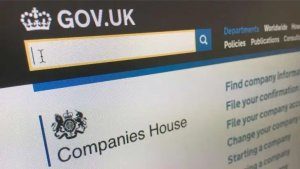- Banking & financial disputes
- Corporate recovery, restructuring & insolvency

Shorter Reads
TEMPORARY CHANGES TO INSOLVENCY LAW TO DEAL WITH THE ECONOMIC IMPACT OF COVID-19
This is the first of two articles exploring the key features of the new insolvency legislation currently being considered by Parliament in the form of the Corporate Insolvency & Governance Bill (the “Bill”).
2 minute read
Published 18 June 2020
Key information
This first article comments on the temporary measures that are designed to alleviate the economic impact of COVID-19, namely the suspension of wrongful trading and restrictions placed on creditors serving statutory demands and winding-up petitions. These temporary provisions are intended to provide businesses with some breathing space during the current pandemic whilst they consider rescue options.
Whilst the Bill has not yet been enacted, it is anticipated that it will, and both temporary provisions are retrospective in effect. As a result, the courts are to a degree already treating these provisions as if they are in force
Temporary suspension of wrongful trading
Ordinarily, directors are under a duty to take every step to minimise potential loss to the company’s creditors where they know, or ought to have known, that there is no reasonable prospect of the company avoiding insolvency. Failure to do so can result in personal liability for the directors.
The COVID-19 pandemic has created a great deal of uncertainty for many companies and directors, particularly as a result of the lack of clarity on when and how businesses would be able to resume trading as normal. Consequently, ascertaining whether there is no reasonable prospect of avoiding insolvency has become much more complex.
However, the Bill provides that the court is to assume that a director is not responsible for any worsening of the financial position of the company or its creditors during the relevant period. This temporary suspension to wrongful trading will come as a welcome relief for directors, as it removes the threat of personal liability for wrongful trading, the fear of which could otherwise result in companies prematurely falling into insolvency procedures.
The suspension of wrongful trading is intended to be retrospective in effect from an initial period beginning on 1 March 2020 and ending either on 30 June 2020 or one month after the legislation comes into force, whichever is the later (the “relevant period”).
However, the relief afforded to directors is subject to limitations. Directors must still ensure that they still comply with their numerous other duties, including under the Companies Act 2006 and fiduciary duties and directors of firms in the financial sector should be aware that the Bill expressly excludes them from this suspension.
Temporary suspension of winding-up petitions
The second temporary measure proposed by the Bill is the restriction on creditors serving statutory demands and winding-up petitions.
In the ordinary course of business, where a company is unable to pay its debts as they fall due, a creditor is able to serve a statutory demand which will allow them to wind up the company if the debt is not paid within three weeks.
Under the temporary suspension, creditors will be prohibited from presenting a winding-up petition on or after 27 April on the basis of a statutory demand served between 1 March 2020 and the date one month after the legislation comes into force.
However, creditors are not completely restricted from presenting all winding-up petitions. Where the creditor is not relying on a statutory demand served during the relevant period, a winding-up petition may not be presented where the creditor has reasonable grounds for believing that coronavirus has not had a financial effect on the company or that the company would be unable to pay its debts even if coronavirus had had a financial effect on the company. So if companies are unable to pay their debts as a result of factors other than the coronavirus, they will not be able to benefit from this provision, which is intended to be used by companies struggling as a result of the pandemic.
Whilst these temporary suspensions will provide some comfort to companies and directors, the effect of both is likely to be limited. Our second article on the Bill will focus on the new statutory moratorium and restructuring plan procedures to be introduced with a view to providing further assistance to financially distressed companies.
Shorter Reads
TEMPORARY CHANGES TO INSOLVENCY LAW TO DEAL WITH THE ECONOMIC IMPACT OF COVID-19
This is the first of two articles exploring the key features of the new insolvency legislation currently being considered by Parliament in the form of the Corporate Insolvency & Governance Bill (the “Bill”).
Published 18 June 2020
Associated sectors / services
Authors
This first article comments on the temporary measures that are designed to alleviate the economic impact of COVID-19, namely the suspension of wrongful trading and restrictions placed on creditors serving statutory demands and winding-up petitions. These temporary provisions are intended to provide businesses with some breathing space during the current pandemic whilst they consider rescue options.
Whilst the Bill has not yet been enacted, it is anticipated that it will, and both temporary provisions are retrospective in effect. As a result, the courts are to a degree already treating these provisions as if they are in force
Temporary suspension of wrongful trading
Ordinarily, directors are under a duty to take every step to minimise potential loss to the company’s creditors where they know, or ought to have known, that there is no reasonable prospect of the company avoiding insolvency. Failure to do so can result in personal liability for the directors.
The COVID-19 pandemic has created a great deal of uncertainty for many companies and directors, particularly as a result of the lack of clarity on when and how businesses would be able to resume trading as normal. Consequently, ascertaining whether there is no reasonable prospect of avoiding insolvency has become much more complex.
However, the Bill provides that the court is to assume that a director is not responsible for any worsening of the financial position of the company or its creditors during the relevant period. This temporary suspension to wrongful trading will come as a welcome relief for directors, as it removes the threat of personal liability for wrongful trading, the fear of which could otherwise result in companies prematurely falling into insolvency procedures.
The suspension of wrongful trading is intended to be retrospective in effect from an initial period beginning on 1 March 2020 and ending either on 30 June 2020 or one month after the legislation comes into force, whichever is the later (the “relevant period”).
However, the relief afforded to directors is subject to limitations. Directors must still ensure that they still comply with their numerous other duties, including under the Companies Act 2006 and fiduciary duties and directors of firms in the financial sector should be aware that the Bill expressly excludes them from this suspension.
Temporary suspension of winding-up petitions
The second temporary measure proposed by the Bill is the restriction on creditors serving statutory demands and winding-up petitions.
In the ordinary course of business, where a company is unable to pay its debts as they fall due, a creditor is able to serve a statutory demand which will allow them to wind up the company if the debt is not paid within three weeks.
Under the temporary suspension, creditors will be prohibited from presenting a winding-up petition on or after 27 April on the basis of a statutory demand served between 1 March 2020 and the date one month after the legislation comes into force.
However, creditors are not completely restricted from presenting all winding-up petitions. Where the creditor is not relying on a statutory demand served during the relevant period, a winding-up petition may not be presented where the creditor has reasonable grounds for believing that coronavirus has not had a financial effect on the company or that the company would be unable to pay its debts even if coronavirus had had a financial effect on the company. So if companies are unable to pay their debts as a result of factors other than the coronavirus, they will not be able to benefit from this provision, which is intended to be used by companies struggling as a result of the pandemic.
Whilst these temporary suspensions will provide some comfort to companies and directors, the effect of both is likely to be limited. Our second article on the Bill will focus on the new statutory moratorium and restructuring plan procedures to be introduced with a view to providing further assistance to financially distressed companies.
Associated sectors / services
- Banking & financial disputes
- Corporate recovery, restructuring & insolvency
Authors
Need some more information? Make an enquiry below.
Subscribe
Please add your details and your areas of interest below
Article contributor
Robin
HenryPartner - Head of Dispute Resolution Services
Specialising in Banking & financial disputes, Commercial disputes, Corporate recovery, restructuring & insolvency, Financial regulatory, Financial Services and Personal insolvency
Enjoy reading our articles? why not subscribe to notifications so you’ll never miss one?
Subscribe to our articlesMessage us on WhatsApp (calling not available)
Please note that Collyer Bristow provides this service during office hours for general information and enquiries only and that no legal or other professional advice will be provided over the WhatsApp platform. Please also note that if you choose to use this platform your personal data is likely to be processed outside the UK and EEA, including in the US. Appropriate legal or other professional opinion should be taken before taking or omitting to take any action in respect of any specific problem. Collyer Bristow LLP accepts no liability for any loss or damage which may arise from reliance on information provided. All information will be deleted immediately upon completion of a conversation.
Close










































































